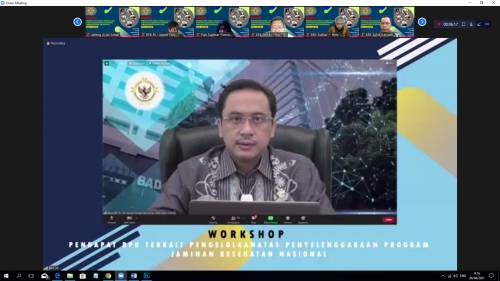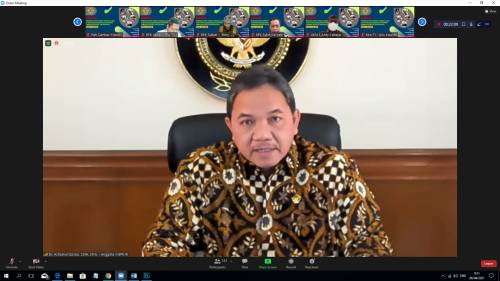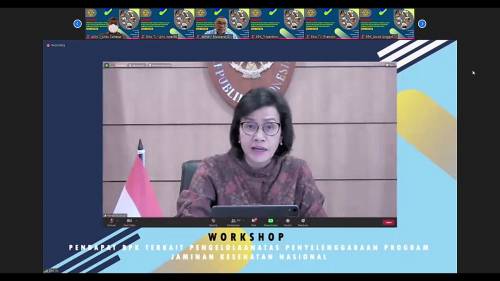Improvement of JKN Program Management Needs to Be Addressed Synergistically Across Ministries/Institutions
AKARTA, BPK Public Relations – The Audit Board of the Republic of Indonesia (BPK) has conducted various audits on Healthcare and Social Security Agency (BPJS), Ministry of Health, Drug and Food Supervisory Body (BPOM), Regional Government, Hospitals, and other relevant agencies within the period of 2015-2019. BPK Chairman, Agung Firman Sampurna, says that the audit results indicate some problems occurred in the implementation of National Health Insurance (JKN) program in which the Road Map of JKN 2012-2019 has not fully achieved.

“These problems have many impacts on financial governance of Social Security Funds (DJS) managed by BPJS and on quality of its health service assurance during the period of 2015-2019,” said BPK Chairman at the opening of Workshop on BPK Viewpoints on Management of National Health Insurance Program (JKN) held virtually in Jakarta, on Tuesday (06/04).
BPK Chairman says that based on the audit, BPK identifies various systemic governance problems, including those occur repeatedly each year. Thus, BPK considers it is necessary to provide its Viewpoints on the implementation of JKN Program.
He further emphasizes that the systemic problems are no longer sufficient if they are only addressed by one ministry/institution or regional government. According to him, these problems need to be addressed synergistically through cross-ministerial and cross-agency cooperation and coordination, as well as involving regional governments with support of relevant stakeholders.

“It is hoped that BPK Viewpoints will be able to encourage the government to address these problems in an appropriate, structured, and timely manner,” stressed BPK Chairman.
Related to these problems, BPK has provided 14 points of its Viewpoints divided into 3 (three) aspects, namely aspect of JKN program participation, aspect of JKN program services, and aspect of JKN program fund. In order to implement these 14 BPK Viewpoints, it takes an active role from all stakeholders, especially the government. As it plays its significant roles for its resources and authority in formulating necessary policies, the government then becomes the spearhead of JKN program improvement.
Closing his remarks, BPK Chairman hopes that the BPK Viewpoints can be immediately executed to improve state financial management, especially the JKN program. Consequently, the program can be implemented in more orderly, effective, efficient, and economical manner in achieving its objectives. In addition, the management of JKN program should also be able to be implemented in accordance with laws and regulations, as well as be transparent and responsible with due regard for sense of justice and propriety.

The workshop presented many keynote speakers including BPK Board Member III, Achsanul Qasasi, Ministry of Finance, Sri Mulyani Indrawati, President Director of BPJS, Ali Ghufrom Mukti, Director General of Budget of the Ministry of Finance, Isa Rachmatarwata, Acting Director General of Regional Development of the Ministry of Home Affairs, Sri Purwaningsih, and Director General of Community Services of the Ministry of Health, Abdul Kadir. Acting as the moderator was BPK Director General of Audit VI, Dori Santosa. In addition, the workshop was also attended by high officials of BPK and Ministries/Institutions.
